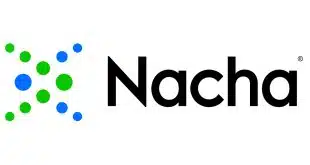In a 5-4 decision, the U.S. Supreme Court ruled Monday that American Express Co.’s anti-steering rules for merchants do not violate federal antitrust law.
The conservative majority’s decision, written by Justice Clarence Thomas, caps a case that dates back to 2010 and involves merchants who wanted to steer merchants to cheaper forms of payment than AmEx cards. Thomas’s opinion, joined by chief justice John G. Roberts Jr. and justices Anthony M. Kennedy, Samuel A. Alito Jr., and Neil M. Gorsuch, affirms a 2016 ruling by the Second U.S. Circuit Court of Appeals. A three-judge panel of that appellate court overturned a trial court’s 2015 conclusion that AmEx’s rules were anticompetitive.

The Supreme Court’s four liberals dissented, with justices Ruth Bader Ginsberg, Elena Kagan, and Sonia Sotomayor joining an opinion written by justice Stephen G. Breyer.
New York City-based AmEx quickly issued a brief statement praising the majority decision. “The Supreme Court’s decision is a major victory for consumers and for American Express,” the statement says. “It will help to promote competition and innovation in the payments industry.”
Merchant trade groups just as quickly decried the decision.
“Today’s ruling is a blow to competition and transparency in the credit card market,” Stephanie Martz, senior vice president and general counsel of the Washington, D.C.-based National Retail Federation, said in a statement. “The American Express rules in question have amounted to a gag order on retailers’ ability to educate their customers on how high swipe fees drive up the price of merchandise.”
The Arlington, Va.-based Retail Industry Leaders Association “expressed disappointment” in a statement from its general counsel, Deborah White. “Today’s decision is a loss for American consumers,” White said. “Competition in the credit card space is sorely lacking. The court’s decision to uphold the Second Circuit’s misguided approach will allow AmEx to continue to stifle competition and prevent consumers from understanding the cost of rising credit card fees.”
The case began when the U.S. Department of Justice and 18 states sued Visa Inc., Mastercard Inc., and AmEx over their rules that banned merchants accepting their cards from steering customers to cheaper forms of payment. Visa and Mastercard quickly settled and dropped their anti-steering rules, but AmEx held out. In a non-jury trial, a federal judge in Brooklyn, N.Y., concluded AmEx’s rules were anticompetitive.
AmEx appealed to the Second Circuit in New York, where a three-judge panel ruled in its favor. Then 11 states led by Ohio took the case to the Supreme Court, where justices heard arguments Feb. 26.
The case revolved around issues of market definitions, including the card industry’s two-sided nature of consumers and merchants, and how card networks compete. In his majority opinion, Thomas noted that the larger Visa and Mastercard networks “have significant structural advantages over AmEx. AmEx competes with them by using a different business model, which focuses on cardholder spending rather than cardholder lending. To encourage cardholder spending, AmEx provides better rewards than the other credit card companies. AmEx must continually invest in its cardholder rewards program to maintain its cardholders’ loyalty. But to fund those investments, it must charge merchants higher fees than its rivals.”
Thomas concluded his 20-page opinion by saying the appellants “have not carried their burden of proving that AmEx’s anti-steering provisions have anticompetitive effects. AmEx’s business model has spurred robust interbrand competition and has increased the quality and quantity of credit card transactions.”
But in his 28-page dissent, Breyer said “the majority’s decision in this case is contrary to basic principles of antitrust law, and it ignores and contradicts the [trial] court’s detailed factual findings.”
The Washington-based Electronic Payments Coalition, a lobbying group of card networks and banks, issued a statement applauding the majority decision for “establishing once and for all that the electronic-payments system is a two-sided market, and for clearly explaining how it operates. As card networks serve both consumers and merchants, regulation favoring one harms the other.”





